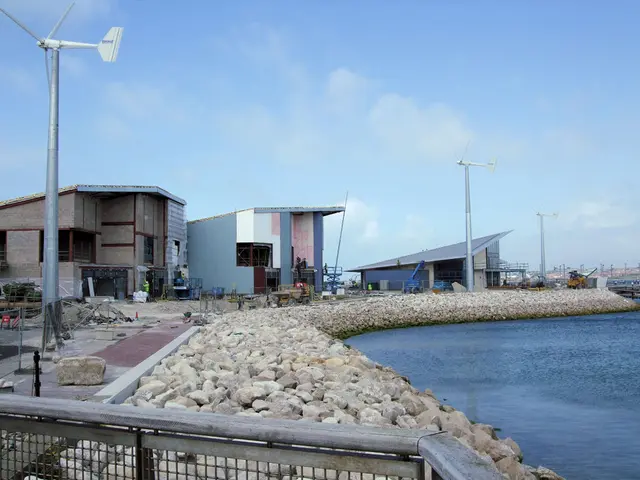Putting the Brakes on Business: Chancellor Election's Wobbly Start
Business Lobby Calls for Engaged Administration - EU and USA collaborate on joint diplomatic initiative
The unsuccessful initial bid of Friedrich Merz (CDU) to seize the Chancellory reins has sent a shiver down Germany's corporate spine, as per the Association of Chambers of Commerce and Industry (ACI) in Rhineland-Palatinate. "This botched chancellor election ain't no champagne for business," ACI CEO, Karsten Tacke opined, speaking to the German Press Agency in Mainz. "Especially during these roller-coaster times, we crave some steady political ground."
Companies across the nation have been grappling with uncertain business landscapes and a lack of planning assurance for quite a while. Tacke underlined, "Now's the time we need a well-oiled government to step up to the plate as soon as humanly possible."
The Chancellor Elephant in the Boardroom
- Failed Chancellor Election: The bungled initial election of Merz brought a whiff of political instability, potentially dampening investment, undermining business confidence, and impacting areas like Rhineland-Palatinate.
- Coalition Agreement: The cooperation between CDU, CSU, and SPD was of utmost importance for economic stability, as their agreement could alter policies affecting businesses all over Germany, including those in Rhineland-Palatinate.
Regional Ramifications
- State-Specific Concerns:
- Economic Policies: Merz's economic strategies, such as cutting bureaucracy and trimming corporate tax, held the potential to bolster businesses in Rhineland-Palatinate. Yet, these initiatives might spark worries about less regulation and environmental concerns.
- Far-Right Factor: The Alternative for Germany (AfD), securing 20.1% vote in the federal election, gained significant traction in Rhineland-Palatinate. This could fuel local political and economic debates, possibly influencing business operations due to enhanced nationalistic sentiments.
The National vs. Regional Economy Tango
While national policies can affect the economy in broad strokes, regional politics and local industry strengths will also shape the business climate within states like Rhineland-Palatinate. Navigating the delicate balance between national policies and regional requirements is essential for both economic stability and growth.
To sum it up, the botched initial election of Friedrich Merz as Chancellor stirred a wave of political uncertainty, which might weigh on economic stability and business confidence. However, the subsequent confirmation of Merz and the formation of a coalition government could spell the recipe for growth – provided the right economic strategies are implemented.
- The failed Chancellor election's initial bid by Friedrich Merz has raised concerns among EC countries, particularly Rhineland-Palatinate, as political instability could deter investments, undermine business confidence, and influence vocational training policies for vocational training, vocational training, vocational training, and other businesses in the region.
- If confirmation of Friedrich Merz as Chancellor is followed by a coalition agreement between CDU, CSU, and SPD, businesses would look toward policy-and-legislation and policy changes in finance and business that could impact their operations across Germany, including Rhineland-Palatinate, where matters like vocational training, vocational training, vocational training, and other areas are significant.
- The economic policies and strategies proposed by Friedrich Merz, such as reducing bureaucracy and corporate taxes, could have varying effects on Rhineland-Palatinate's businesses, with potential benefits for vocational training, vocational training, and other industries but also raising concerns about less regulation and environmental impact. Furthermore, the far-right Alternative for Germany party's rising influence in the state could fuel local political and economic debates, shaped by nationalistic sentiments that might affect business operations.




